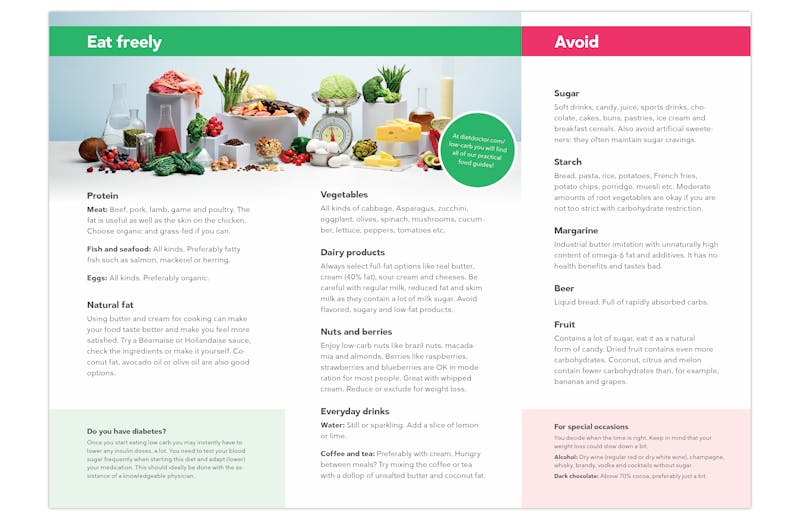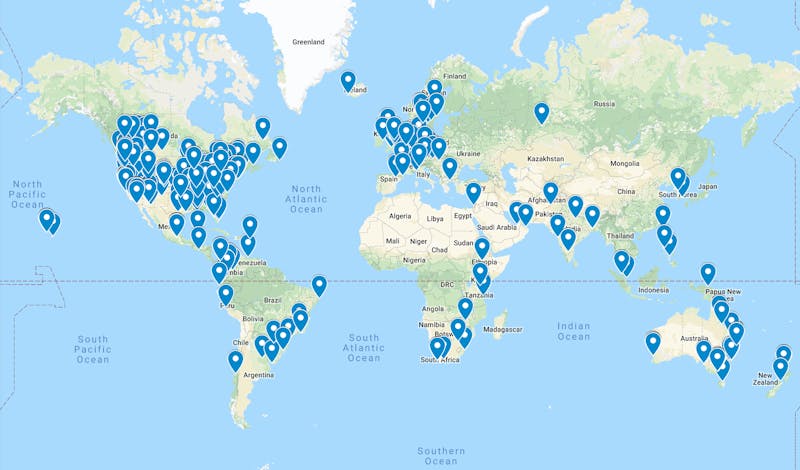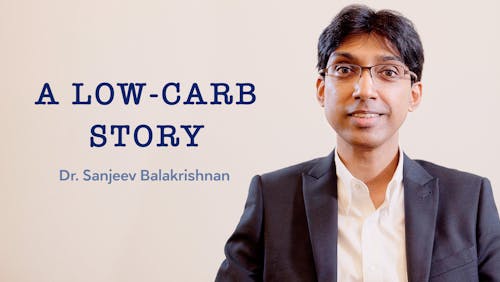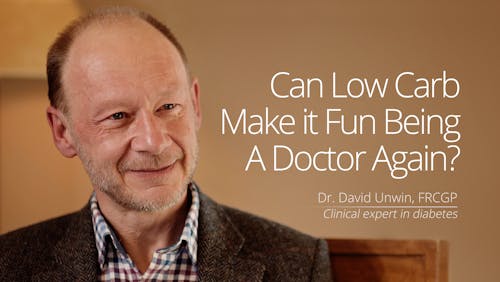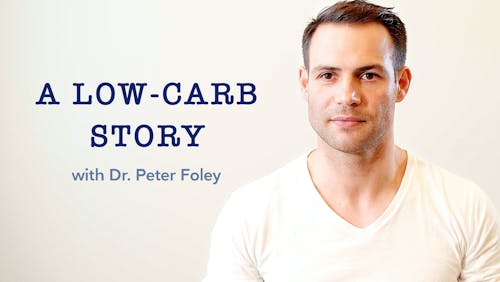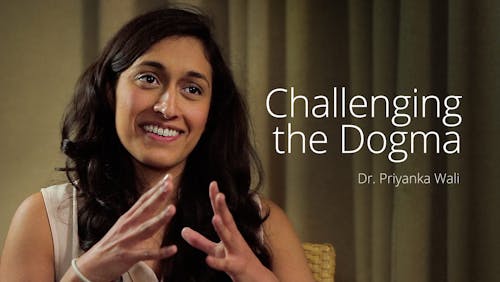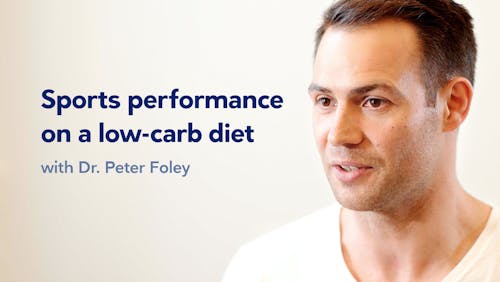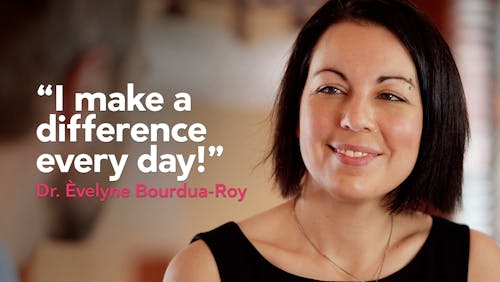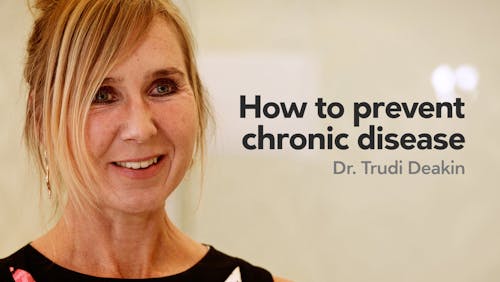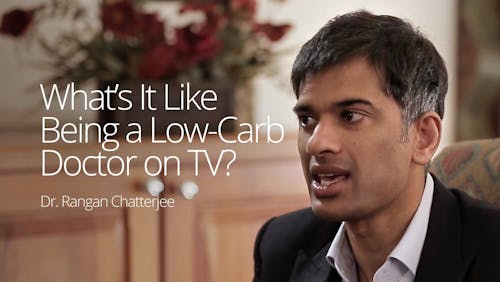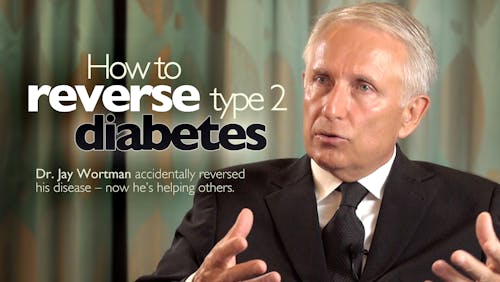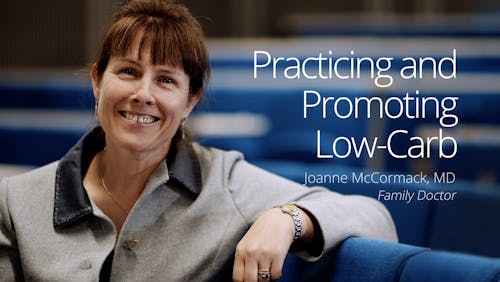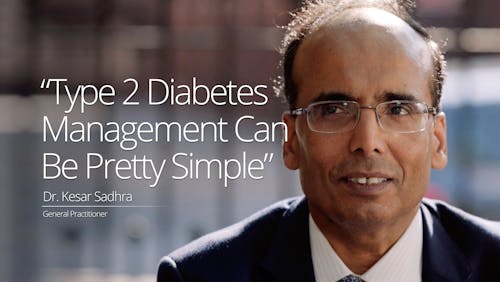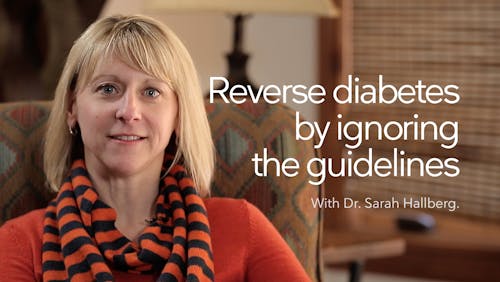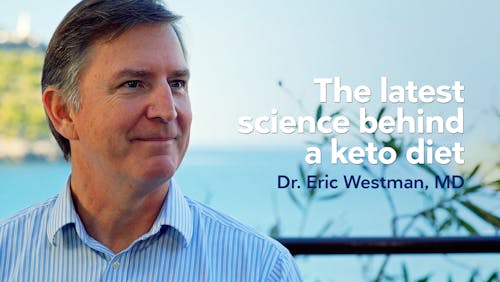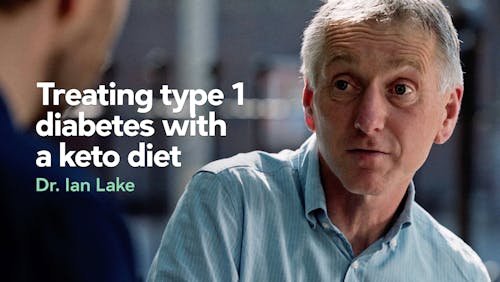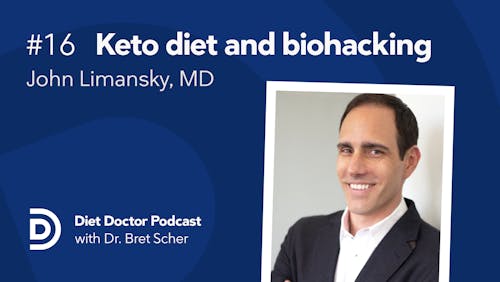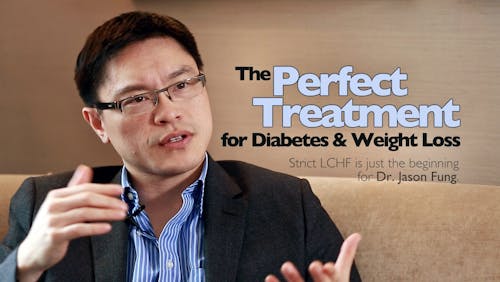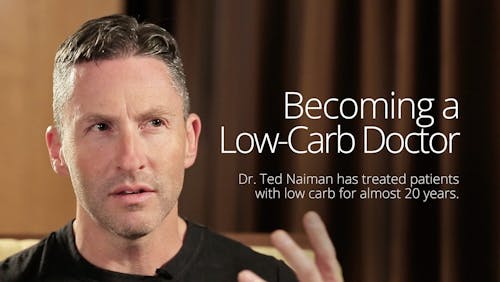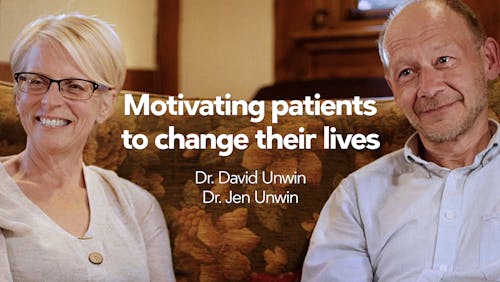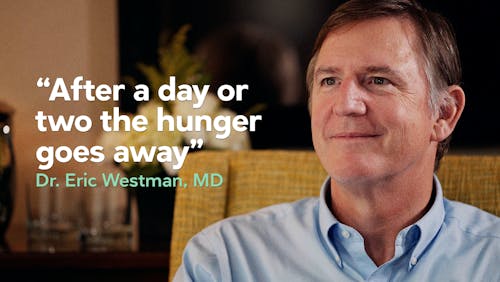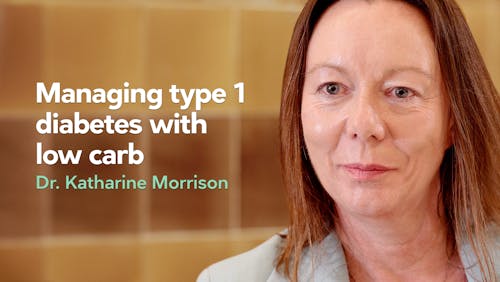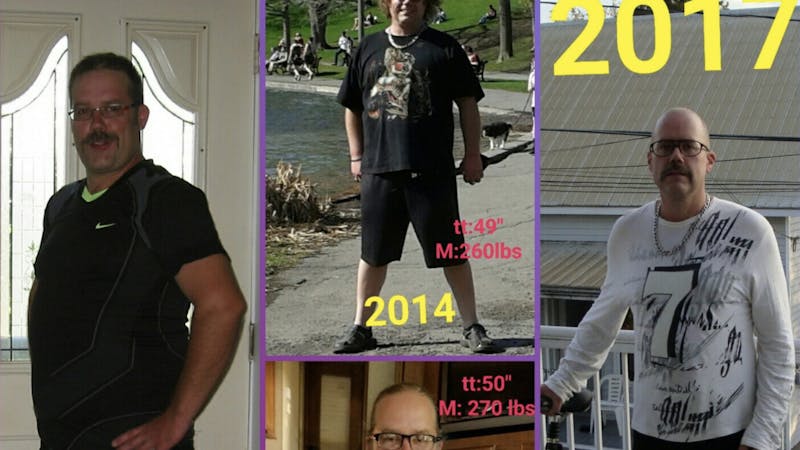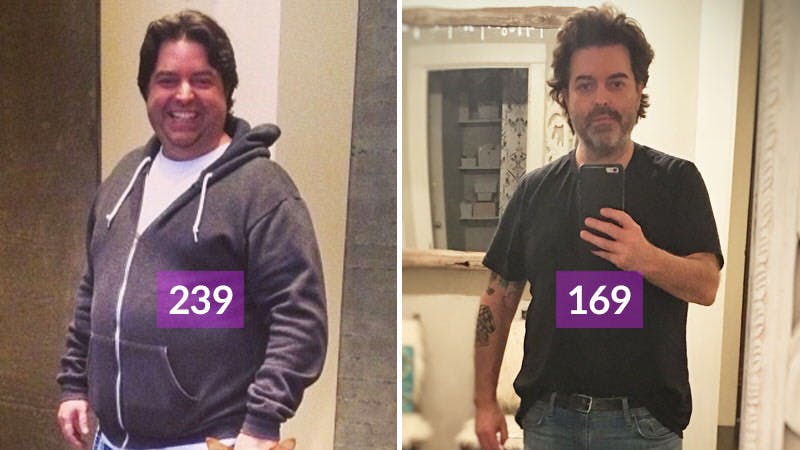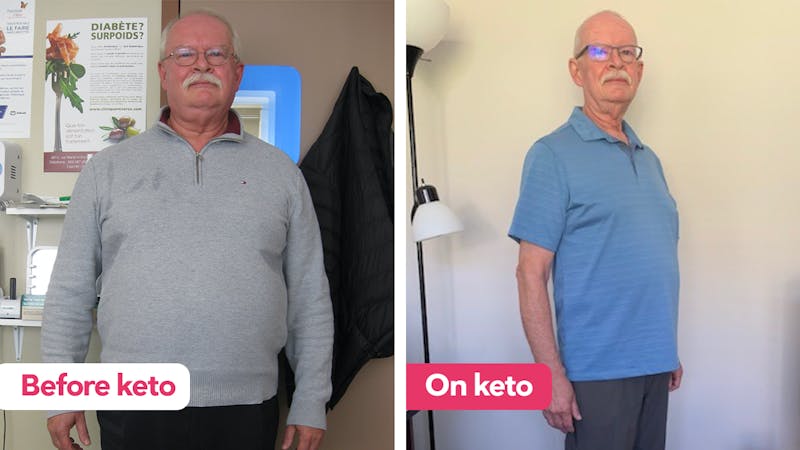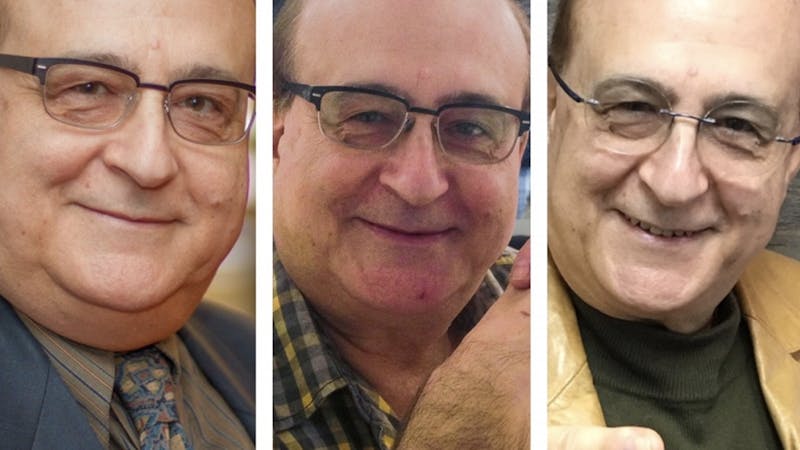Low carb & keto
for clinicians
1. Introduction
Are you a clinician curious about how low-carb nutrition can help your patients? Look no further. Or maybe you’re a clinician who has heard about low-carb nutrition, but some outlandish claims have given you a reason to doubt its scientific foundations. We sympathize with that perspective too.
Our main goal at Diet Doctor is to make low-carb diets simple for people who could benefit from them and to do so in the most trustworthy and reliable manner possible.
This includes making it easy for clinicians to learn about low-carb diets. Carbohydrate reduction expands the options clinicians can offer patients. As these hundreds of success stories show, many individuals find low carb to be a life-changing discovery.
But there’s another important change that can occur: Not only can low carb transform patients’ lives, it can transform your clinical practice. Rising rates of metabolic diseases have highlighted just how ineffective our tools are for dealing with these conditions.1 Many clinicians are frustrated with constantly juggling risk factors, medications, and side effects for patients with chronic disease.
We think all clinicians would like to see their patients become healthier. They’d like to remove medications instead of always adding them. Many clinicians who have started using carbohydrate reduction as a therapeutic tool have been able to do just that. As a result, they’ve found more enjoyment, satisfaction, and patient engagement in their daily work.
We can help that happen for you too, by giving you the tools to assist patients in working to reverse – rather than just manage – chronic conditions like obesity, type 2 diabetes, and metabolic syndrome.2
2. Misconceptions about low-carb and keto diets
We also understand if you are not yet sold on the idea that low-carb diets can help your patients improve their health long-term.
If you are concerned about some of the things you’ve heard about these diets, we have a guide dedicated to helping you understand the long-term safety and effectiveness of therapeutic carbohydrate reduction.

The guide for doctors skeptical of low carb
This guide will help explain the science surrounding low-carb diets. If you are a healthcare practitioner, this guide will hopefully help you reexamine the risk/benefit balance of low-carb diets.
3. The science behind low-carb and keto diets
While carbohydrate reduction is not a “cure-all” and there are many conditions for which no proof of benefit exists, studies have shown carbohydrate reduction can help improve these common conditions:
- Dozens of studies show that low carb is an effective weight loss tool.3
- Many studies demonstrate its effectiveness in reversing the clinical signs of type 2 diabetes or pre-diabetes and helping patients reduce their use of diabetes medications.4
- Beyond weight loss and glycemic control, it improves other features of metabolic syndrome including blood pressure and dyslipidemia.5
- Several studies show it helps manage epilepsy.6
- Preliminary evidence shows it helps treat the clinical and biochemical features of PCOS.7
- More preliminary findings indicate that low carb may be a beneficial option for people with irritable bowel syndrome (IBS), Alzheimer’s, and other conditions.8
4. Tools for low-carb clinical care
No worries. We have all the tools you need to incorporate carbohydrate reduction in your practice, from a fully accredited CME course to patient education handouts and clinician resources.
We encourage you to start with our free CME activity, Treating metabolic syndrome, type 2 diabetes, and obesity with therapeutic carbohydrate restriction, and then explore other resources, such as our low carb for doctors video series.
5. Continuing medical education activity
The free CME activity, Treating metabolic syndrome, type 2 diabetes, and obesity with therapeutic carbohydrate restriction, was designed by and for clinicians. This course provides clinicians with the information and tools they need to use therapeutic carbohydrate restriction with their patients and includes a comprehensive review of the science of carbohydrate restriction as an option for helping patients improve their health.
If you are a physician, physician assistant, nurse practitioner, registered nurse, or registered dietitian, you can apply for a certificate that indicates you’ve completed our CME course and meet the criteria specified by Diet Doctor regarding ethical and appropriate clinical practice.
You can also join our map by filling out this online form.
After you finish the course, we encourage you to look around the rest of our website.
6. Low carb for doctors video series
In our low carb for doctors video series, Dr. David Unwin walks you through what you need to know to help your patients be successful following a low-carb or keto diet. Dr. Unwin is a family physician in the UK who has been treating patients with low-carb diets since 2012.
In 2016, he won the prestigious NHS Innovator of the Year award for his work with diabetes patients. Although aimed at doctors, other healthcare professionals can also learn more about low-carb care from Dr. Unwin’s experiences.
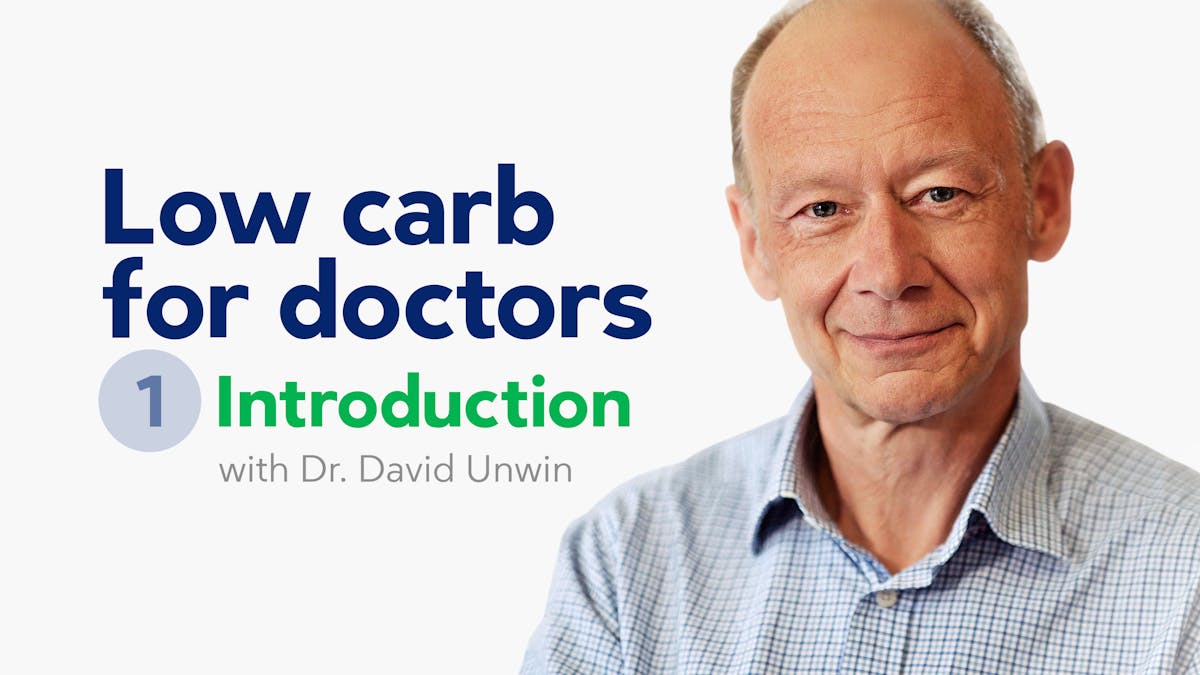
Low carb for doctors video course
This course will cover very practical tips for doctors, like how to effectively discuss the low-carb lifestyle with patients, how to handle medications, safety, patient motivation and much more.
7. Patient education resources
When it comes to helping your patients with recipes, meal plans, and practical tips for getting started and long-term maintenance, we have all the tools you need for providing low-carb care. These printable pdfs will educate patients about how to effectively adopt a low-carb lifestyle.
- Brochure
- Sample menu
- Shopping list
- Meal planning
- Substitutes for favorite foods
- Simple meals and planned leftovers
- Patient resources
- Target protein ranges
In addition, you can send your patients to DietDoctor.com to learn more. The most important resources on the site are freely available to everyone.
8. Clinician resources
These one-pagers condense key points from our CME course in one-page clinic reference tools.
- Target protein ranges
- Monitoring ketones
- Fasting insulin and HOMA-IR ranges
- Lab tests and follow-up schedule
- Type 2 diabetes medication reduction
- 5-day food diary
Many people can safely start a low-carb or keto diet on their own. But individuals on certain medications — such as diabetes or blood pressure medications — may require more preparation and support. These guides can help you learn more about how to safely work with your patients as they begin carbohydrate restriction.
- Helping patients adopt low carb
- Starting low carb or keto with diabetes and blood pressure medications
- Monitoring patients on low-carb: Lab tests
- Pre-existing health issues
Clinicians can find additional information about “Low-carbohydrate nutrition approaches in patients with obesity, prediabetes, and diabetes,” in this online flipbook created by a group of clinicians and researchers with many years of experience in low carb.
Do you want to know about carb restriction in special cases such as breastfeeding, mental health, and other contexts?
9. Find a low-carb doctor
On our “Find a low-carb clinician” page, you’ll see the names, faces, and stories of clinicians who use low-carb and keto diets with their patients.
This page also has a map of more than 700 health professionals (and growing!) you can use to connect with colleagues. If you’d like to put yourself on that map, you’ll also find a form and instructions on that page for joining this directory.
10. Low-carb clinicians’ stories
Listening to the experiences and insights of fellow clinicians can be a great way to learn more about how to use carbohydrate restriction in your own practice.
- Dr. Bret Scher: Evaluating the evidence, challenging medical dogma
- Dr. David Unwin: Can low carb make it fun being a doctor again?
- Dr. Ted Naiman: Treating patients with low carb for 20 years
- Dr. Evelyne Bourdua-Roy: How I became an LCHF doctor reversing type 2 diabetes
- Dr. Peter Foley: Low carb and me – my journey as a GP
- Dr. Christopher Stadtherr: My path to low carb
11. Patients’ stories
You may also be inspired by the stories of individuals who have improved their health and lost weight using carbohydrate-restricted diets.
“I am completely blown away by the changes”
Christine has completely transformed her health in only one year with a keto diet and intermittent fasting. Here she shares all the benefits and what it has been like ditching carbs.
As Dr. Èvelyne Bourdua-Roy noted, “Perhaps low carb isn’t for everyone, but everyone deserves to know it’s a therapeutic option, and that it is safe and evidence-based.” Don’t you think your patients deserve this option as well?
Did you enjoy this guide?
We hope so. We want to take this opportunity to mention that Diet Doctor takes no money from ads, industry or product sales. Our revenues come solely from members who want to support our purpose of empowering people everywhere to dramatically improve their health.
Will you consider joining us as a member as we pursue our mission to make low carb simple?
Interested in becoming a DD Pro member?
We hope so. We are excited to announce the creation of a program designed especially for clinicians like you. We call it DD Pro. The goal is to design a program that takes the burden off you and gives you and your patients the resources you need to succeed.
Learn more about DD ProLow carb and keto for clinicians - the evidence
This guide is written by Dr. Evelyne Bourdua-Roy, MD and was last updated on November 11, 2022. It was medically reviewed by Dr. Bret Scher, MD on September 25, 2022.
The guide contains scientific references. You can find these in the notes throughout the text, and click the links to read the peer-reviewed scientific papers. When appropriate we include a grading of the strength of the evidence, with a link to our policy on this. Our evidence-based guides are updated at least once per year to reflect and reference the latest science on the topic.
All our evidence-based health guides are written or reviewed by medical doctors who are experts on the topic. To stay unbiased we show no ads, sell no physical products, and take no money from the industry. We're fully funded by the people, via an optional membership. Most information at Diet Doctor is free forever.
Read more about our policies and work with evidence-based guides, nutritional controversies, our editorial team, and our medical review board.
Should you find any inaccuracy in this guide, please email andreas@dietdoctor.com.
CDC.gov 2018: National diabetes statistics report, 2017 [CDC consensus report article; ungraded]
Current Hypertension Reports 2018: The global epidemic of the metabolic syndrome [overview article; ungraded] ↩
Some disagree with the use of the word “reverse” when it comes to type 2 diabetes or metabolic disease. The concern is that it may imply the disease is completely gone, never to return. At Diet Doctor, we use the term “reverse” to indicate that blood sugars are no longer in the diabetic range. However, we acknowledge that blood glucose will likely rise back to that range if a patient goes back to their prior high-carb eating habits. Therefore, “reverse” does not imply a forever cure. ↩
Here are two examples of the many trials showing equivalent or greater weight loss on low-carb diets compared to low-fat diets:PLoS One 2015: Dietary intervention for overweight and obese adults: Comparison of low-carbohydrate and low-fat diets. A meta-analysis [strong evidence] Learn more
The British Journal of Nutrition 2016: Effects of low-carbohydrate diets v. low-fat diets on body weight and cardiovascular risk factors: a meta-analysis of randomised controlled trials [strong evidence] Learn more
Low carb does not just result in more weight loss than comparison diets, it also results in more fat loss, especially when carbs are limited to 50 grams per day:
Obesity Reviews 2016: Impact of low-carbohydrate diet on body composition: meta-analysis of randomized controlled studies [strong evidence] ↩
The advantage of a low-carb diet in type 2 diabetes was recognized in this meta-analysis of RCTs:Nutrients 2020: Impact of a ketogenic diet on metabolic parameters in patients with obesity or overweight and with or without type 2 diabetes: A meta-analysis of randomized controlled trials [systematic review of randomized trials; strong evidence]
In addition, both randomized and nonrandomized studies have shown better glucose control and more dose reduction/discontinuation of diabetes medications with low-carb diets.
Nutrients 2018: The effect of low-carbohydrate diet on glycemic control in patients with type 2 diabetes [moderate evidence]
Frontiers in Endocrinology 2019: Long-term effects of a novel continuous remote care intervention including nutritional ketosis for the management of type 2 diabetes: A 2-year non-randomized clinical trial [weak evidence]
Nutrition & Metabolism 2008: Low-carbohydrate diet in type 2 diabetes: stable improvement of bodyweight and glycemic control during 44 months follow-up [weak evidence] ↩
Obesity Reviews 2012: Systematic review and meta-analysis of clinical trials of the effects of low carbohydrate diets on cardiovascular risk factors. [systematic review of randomized trials; strong evidence]British Journal of Nutrition 2016: Effects of low-carbohydrate diets v. low-fat diets on body weight and cardiovascular risk factors: a meta-analysis of randomised controlled trials [strong evidence]
Nutrition Reviews 2018: Effects of carbohydrate-restricted diets on low-density lipoprotein cholesterol levels in overweight and obese adults: a systematic review and meta-analysis [strong evidence]
Lipids 2009: Carbohydrate restriction has a more favorable impact on the metabolic syndrome than a low fat diet [randomized trial; moderate evidence]
↩Epilepsia 2018: Effect of modified Atkins diet in adults with drug-resistant focal epilepsy: a randomized controlled trial [moderate evidence]Epilepsia Open 2018: Ketogenic diet for treatment of intractable epilepsy in adults: A meta-analysis of observational studies [weak evidence] ↩
Nutrition & Metabolism 2005: The effects of a low-carbohydrate, ketogenic diet on the polycystic ovary syndrome: a pilot study [weak evidence]Journal of Obesity & Weight Loss Therapy 2015: Low-starch/low-dairy diet results in successful treatment of obesity and co-morbidities linked to polycystic ovary syndrome (PCOS) [weak evidence]
Journal of Translational Medicine 2020: Effects of a ketogenic diet in overweight women with polycystic ovary syndrome [nonrandomized study, weak evidence] ↩
Clinical Gastroenterology and Hepatology 2009: A very low-carbohydrate diet improves symptoms and quality of life in diarrhea-predominant irritable bowel syndrome [weak evidence]Neurobiology of Aging 2012: Dietary ketosis enhances memory in mild cognitive impairment [moderate evidence] ↩

